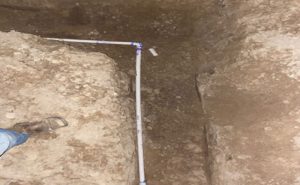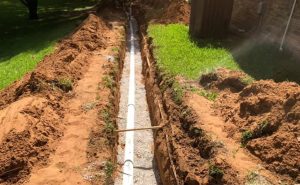Everything’s going fine. Coffee’s brewed. You’re running on schedule. Then the sink fills up. The water won’t go down the drain in the shower. The toilet makes a noise like a warning siren. Your entire rhythm gets messed up just like that. A blockage may create that type of trouble. It may seem little, but it has an effect on everything else.
A clogged drain doesn’t only mean that water won’t flow down; it also means that you don’t have time, you didn’t prepare for the mess, and you didn’t ask for the stress. And the fact is that it can all be avoided. A little knowledge and a few simple habits are usually all you need to keep things running smoothly and avoid surprises.
Let’s talk about how to stay ahead of clogs before they sneak in and rearrange your day.
The Ripple Effect of One Clog
A clog rarely shows up alone. It delays morning routines. It adds an unplanned task to your already full day. It can even stir tension in the home. All it takes is one slow drain to trigger a series of setbacks — you skip breakfast, you’re late for work, the laundry doesn’t finish, the dishes pile up. The day turns sideways.
It doesn’t end there. That blockage might start to smell bad and grow mold and mildew if you leave it too long. And no one wants to deal with it. That’s why it’s not enough to only maintain the pipes clean to prevent a blockage. It’s about keeping your life on track, your house comfortable, and stress out of your environment.
What Clogs Are Really Made Of
Clogs don’t appear out of nowhere. They build quietly, over time. Hair, grease, food bits, soap residue, hygiene products — even those so-called “flushable” wipes. It all collects. Slowly. Silently. Until it doesn’t anymore.
Here’s what tends to cause blockages in the most common places:
- Bathroom sinks and tubs: Hair, toothpaste, soap scum
- Kitchen sinks: Food scraps, grease, oil, coffee grounds
- Toilets: Wipes, paper towels, feminine products, too much tissue
- Showers: Hair buildup, shampoo residue, hard water deposits
These small things feel harmless in the moment, but they build a fortress over time.
Easy Habits That Make a Big Difference
You don’t need fancy tools or drastic measures to stay clog-free. A few small, smart changes to daily habits can make all the difference.
Try weaving these into your routine:
- Wipe grease into the trash instead of pouring it down the drain.
- Install simple hair catchers in the shower and sink drains.
- Empty food scraps into the trash before rinsing dishes.
- Flush only what’s meant to be flushed — no wipes, no paper towels.
- Run hot water through the kitchen sink after heavy dishwashing.
- Brush hair before showering to reduce what goes down the drain.
- Use baking soda and vinegar once a month as a gentle rinse.
These steps don’t take much time, but they save hours — and dollars — down the road.
Signs That Trouble’s Already Brewing
Even when a clog hasn’t fully formed, there are whispers that it’s on the way. Listening early helps prevent chaos later.
Here’s what to look out for:
- Water is draining more slowly than usual
- Gurgling sounds in pipes
- Unpleasant smells rising up from sinks or tubs
- Water is backing up in places it shouldn’t
- The toilet bubbles when another drain is used
If these signs show up, acting quickly means you may avoid the full-scale clog entirely.
The True Cost of Waiting
Waiting for a clog to become “bad enough” is like ignoring a leaky roof because it hasn’t collapsed yet. It may seem easier now, but it always costs more later. From higher repair bills to more time spent fixing what could have been prevented, procrastination has a price.
Beyond the financial cost, there’s the emotional toll. The frustration of an out-of-order bathroom. The embarrassment of a smelly kitchen when guests arrive. The stress of rearranging your day to deal with an issue that could’ve been skipped altogether.
Being proactive means keeping control. It means staying in charge of your day — not letting plumbing problems call the shots.
Small Tools Worth Keeping On Hand
While most daily habits handle the job, it helps to be prepared. You don’t need a toolbox full of gear — just a few basics that can save you when time is tight.
- Plunger: Essential for both toilets and some sink clogs
- Drain snake or zip-it tool: Great for hair in shower and sink drains
- Baking soda and vinegar: Natural combo to break up buildup
- Gloves: Makes any mess less gross to deal with
These aren’t cure-alls, but they’re your first line of defense when things start to slow.
Preventing Clogs Is About Preventing Chaos
At its core, preventing clogs is about protecting the flow of water, of your day, and of your peace. It’s about creating a space that runs the way it should. When drains are clear, things move. You stay on track. Your home stays clean. And your time stays yours.
It’s never just about plumbing. It’s about how your space supports your life. The more care you put into these small acts of prevention, the calmer you create for yourself and everyone around you.
Final Verdict: Keep the Flow, Keep the Day
It’s easy to forget how important a clear drain is until the water stops moving. Then everything stops with it. But with just a little care, a few everyday habits, and a bit of attention to the signs, you can stay ahead of it all. Because your time matters. Your comfort matters. And your day shouldn’t be thrown off by something as fixable as a clog.
If you ever find yourself facing a situation that’s grown beyond simple steps, Honey Do’s Plumbing is a name many rely on. Their reputation is built on consistency, honesty, and showing up when it matters most.
But the best clog is the one you never have to deal with — and now you’re better equipped to make that happen. Keep things flowing. Keep your day yours.



